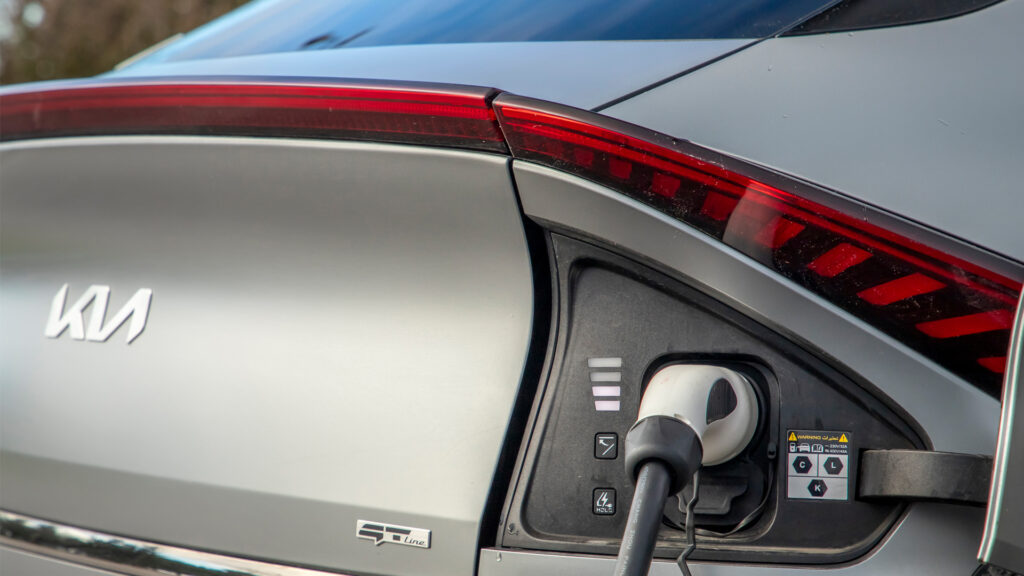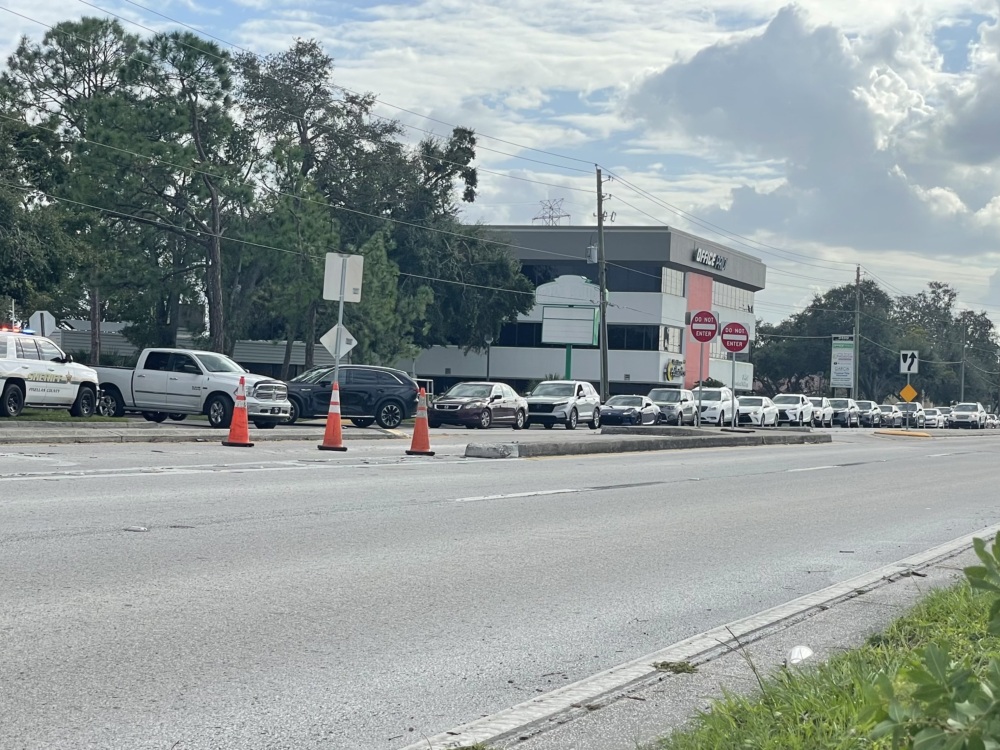By Mia McCormick, Environment Florida
You’ve probably seen the headlines, “Electric vehicles catch fire after storm.” Right now, there is a lot of press about how saltwater intrusion can increase the chance of lithium-ion batteries catching fire. Despite this serious concern, avoiding this scenario is entirely possible. What’s even more possible is that owning an EV during inclement weather situations can be beneficial in a number of ways.
Avoiding an EV fire
I live in the Tampa Bay area on the Gulf Coast. Our area experienced storm surge over 7 feet during Hurricane Helene, flooding coastal communities, homes and businesses with water. I also own an electric vehicle. Leading up to Helene’s arrival I saw newscasts on every channel warning EV owners about the possibility of fire if their vehicle is exposed to saltwater.

This struck me as strange. While the threat of fire from any lithium-ion battery exposed to saltwater is real, most of the vehicles exposed to being submerged in saltwater would be found in mandatory evacuation zones. Most Floridians know the importance of having a hurricane plan in place for when a storm hits. That plan usually includes your vehicles.
Simply taking your EV with you when you evacuate or moving your EV to a friend’s house on higher ground will solve the problem. If your property is expecting storm surge it seems reasonable that you would plan to move your vehicles no matter what type of car you drive.
Although you may hear about EV fires in the news more frequently, gas-powered cars still catch fire more often than EV’s. A lot more often. A study by AutoInsuranceEZ.com shows that per 100,000 sold, gas vehicles average 1,529 fires and EVs just 25. And hundreds of thousands of recalls are issued for gas cars because of fire risks, way more than EVs.
EVs have unique advantages during emergencies
Owning an EV has some unique advantages during a weather emergency. Roughly 72 hours before Hurricane Helene made landfall, we started to see lines at our local gas stations. As the storm approached those lines stretched down the street. It’s not uncommon to wait several hours to fill up when a hurricane is churning offshore, or just after it passes.

Before and after a hurricane it’s common to drive around searching when gas stations run dry. I saw it after Hurricane Helene and Milton, it was the same story last year leading up to Hurricane Idalia. That storm highlighted another risk, contamination. Nearly 30 gas stations around Tampa Bay sold contaminated gas in the week leading up to Idalia’s approach, damaging engines and generators at a time when residents needed reliability.
Jennifer Rennicks lives in Asheville, where widespread flooding from Hurricane Helene swept up homes and washed out roads. “I have been able to charge our personal vehicle several times at a few different charging stations easily and without long waits. On the contrary, we’ve seen gas lines several blocks long and, in some cases, they are waiting on the next gas delivery,” said Rennicks, a coalition partner at World Resources Institute.
Personally, when my family is making the decision to stay or evacuate with an approaching storm, we simply plug in our vehicle and charge it to full capacity. We avoid the heated tempers and stress of gas station lines, and we take the charging cord with us in the vehicle.
Florida is a national leader when it comes to the number of EV charging stations available. And in the worst-case scenario we can use our charging cord to “trickle charge” the car at any standard outlet. It’s slow, but an option.
EVs to the rescue
In some situations, electric vehicles can even save the day in emergency situations. For example, when gas stations were inundated and Asheville was isolated by washed out roads after Helene came through, Rennicks was able to charge her EV and drive out of Asheville toward Charlotte to bring back water for her family and neighbors.
And when our family lost power during the hurricane, our fully charged EV allowed us to plug in our phones and laptops to keep our communication channels open. This can be a crucial backup in the days after a storm like Helene that leaves behind destruction and chaos.
Additionally, some electric vehicles already offer bidirectional charging, which allows them to reverse the charging process and power a home or building for a couple of days. This technology will be offered in dozens of new electric vehicles scheduled for release over the next two years. It essentially turns your charged electric vehicle into a generator that can run your fridge, stove and AC if needed in a power outage.

Renewable energy increases hurricane resiliency
Despite the scary headlines, electric vehicles can provide options and essential communication lines during severe weather that gas-powered vehicles cannot. They are just one example of how clean energy can increase our resiliency during hurricanes.
As the intensity and frequency of severe weather continues to rise, it’s time for Florida leaders to rise to the challenge and embrace renewable energy sources that make us more resilient to these storms. And stop subsidizing the fossil fuel industry that is expelling pollutants that create conditions which fuel this extreme weather.
Mia McCormick is an advocate with Environment Florida, a policy and action group with one mission: to build a healthier, greener Sunshine State. This piece was originally published at https://environmentamerica.org/florida/articles/the-truth-about-ev-fires-and-their-surprising-benefits-in-a-storm/. Banner photo: An electric vehicle charging at a free public charging station in Orlando (iStock image).
If you are interested in submitting an opinion piece to The Invading Sea, email Editor Nathan Crabbe at ncrabbe@fau.edu. Sign up for The Invading Sea newsletter by visiting here.



